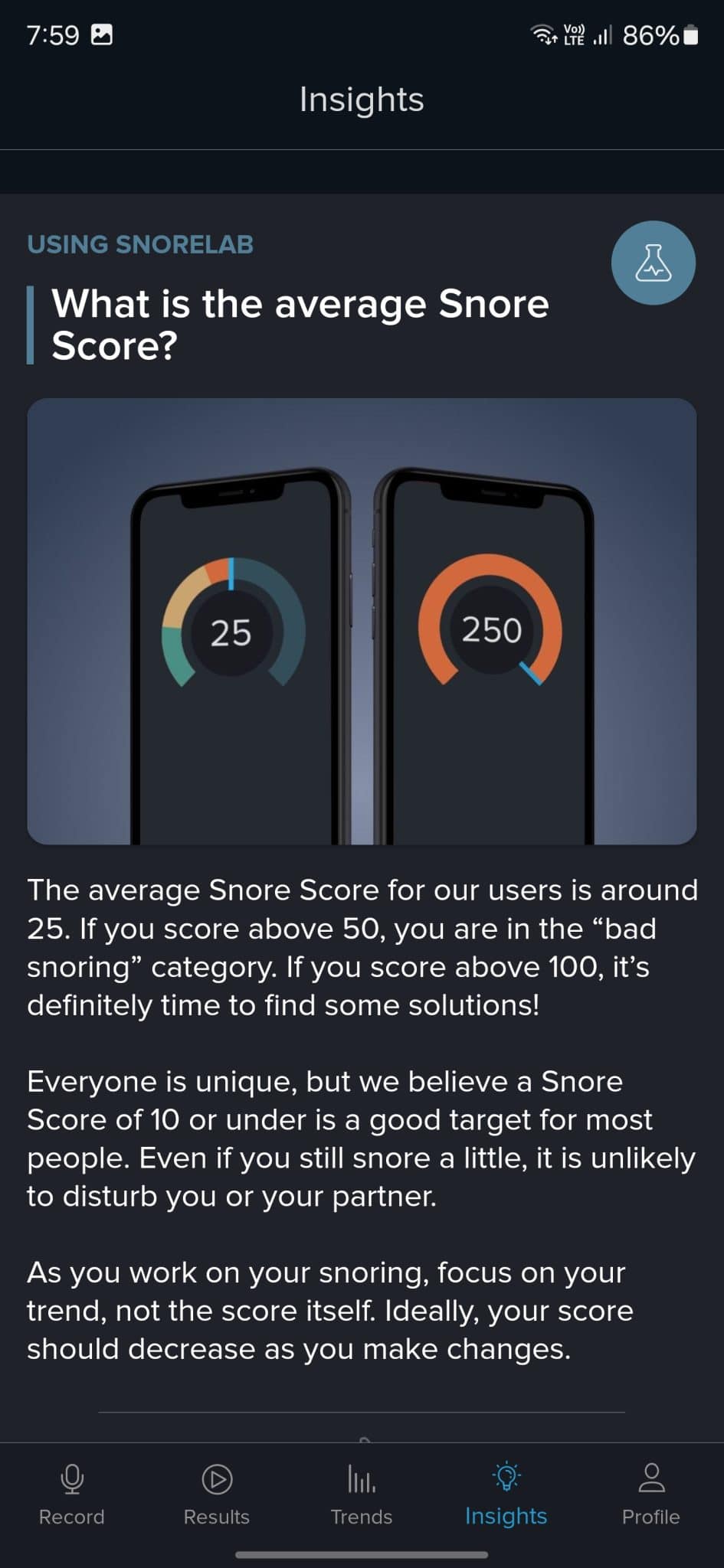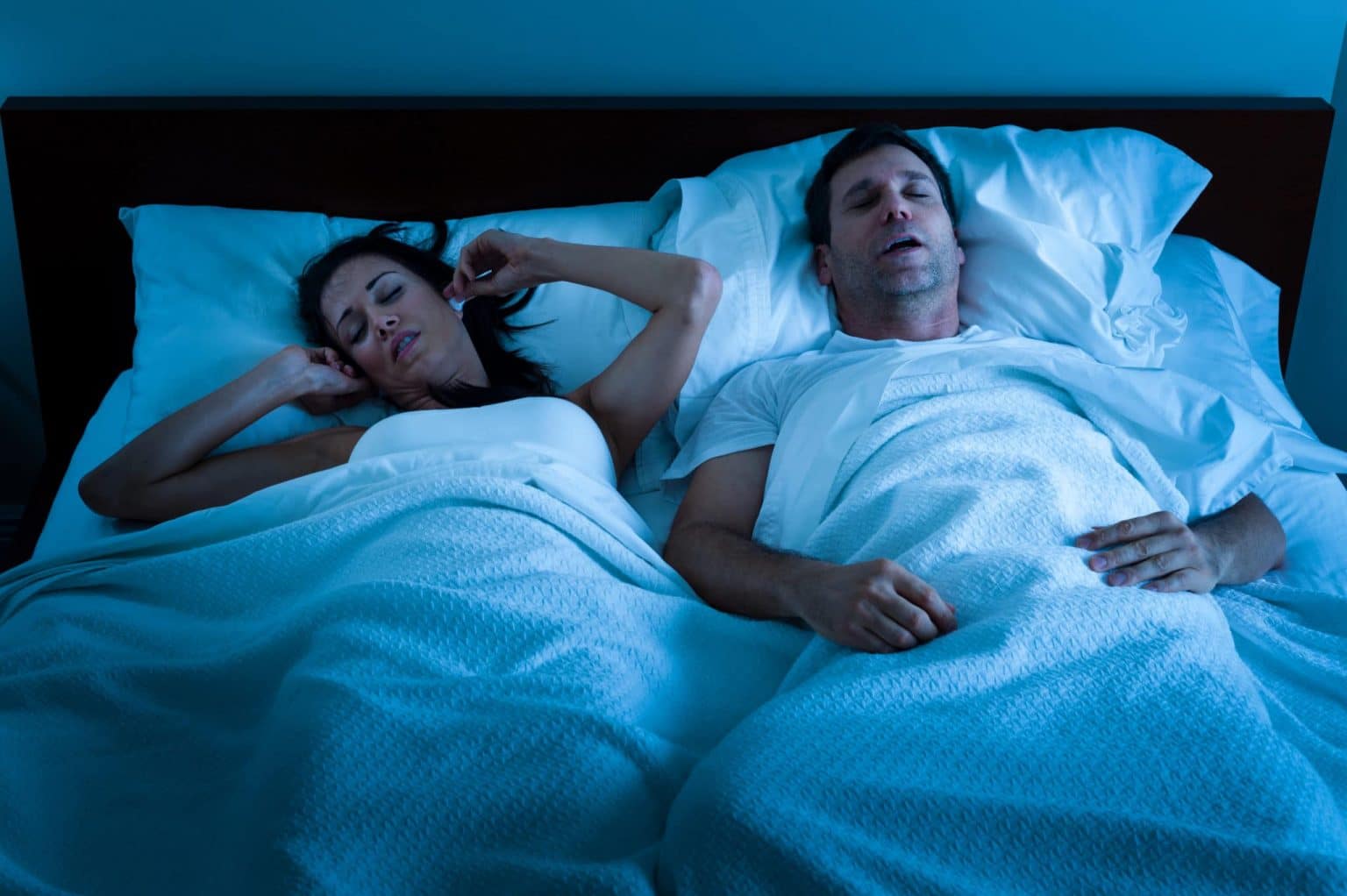Laugh and the world laughs with you, snore and you sleep alone.
– Anthony Burgess
First, let’s delve into why we snore and what can cause it. Then, we will discuss the app I have been using for the last few nights to track and record my snoring – SnoreLab. SnoreLab has been awesome. It’s easy to use and provides much entertainment as you can listen to snoring and other nocturnal noises (sleeping, talking, moving around in bed, cats) the next morning. Additionally, it gives you a snore score, which I will use to see if certain treatments help the issue.
Men are twice as likely to snore as women
Understanding the Basics: Why Do We Snore?
Snoring occurs when airflow through the mouth and nose is partially obstructed during sleep. This obstruction causes the tissues in the upper airway to vibrate, producing the characteristic sound. As you drift into deeper stages of sleep, the muscles in your throat, tongue, and roof of your mouth (soft palate) relax. If these tissues relax too much, they can partially block your airway, leading to turbulence in airflow. The vibrating tissues create noise, which is what we know as snoring. It’s a fascinating and somewhat mysterious phenomenon, given that even small changes in airway anatomy or muscle tone can significantly influence its occurrence and severity.
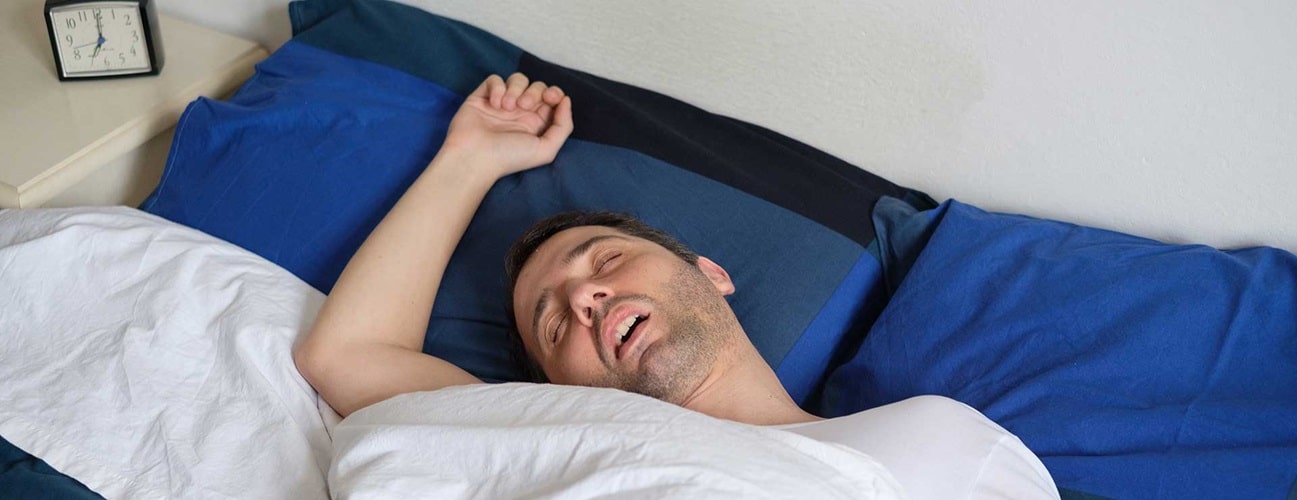
Common Causes of Snoring: From Lifestyle to Genetics
Snoring is common, but what causes it can vary widely from person to person. While lifestyle factors are often behind snoring, genetics also play a significant role. For instance, if you have a family history of heavy snoring, such as loud snorers among your immediate relatives, you might be more predisposed to it yourself.
One of the primary causes of snoring is the relaxation of muscles in your throat. When you sleep, these muscles relax, which can lead to a narrowing of the airway. The narrower the airway, the more forceful the airflow becomes. This causes the tissues in your throat to vibrate, producing that familiar snoring sound.
Snoring tends to worsen with age
Lifestyle choices also significantly impact your likelihood of snoring. Factors such as alcohol consumption, smoking, and obesity are well-known contributors. Alcohol relaxes the muscles even more than usual, smoking irritates the membranes in the nose and throat, and excess weight can increase the amount of tissue in the throat, all contributing to increased snoring.
On the genetic side, certain physical attributes can make you more susceptible to snoring. These include having a thick neck, large tonsils, a deviated septum, or a small jaw. Conditions such as sleep apnea, which can run in families, are also often linked with chronic snoring. The risk is higher for men, and the likelihood increases with age.
Even seemingly minor factors, such as sleeping position, can influence snoring. For example, people who sleep on their backs are likelier to snore because gravity causes the tongue and soft tissues to fall back and partially block the airway. Switching to a side-sleeping position can sometimes help alleviate this issue.
For my partner, the general solution has been tapping me on the shoulder and telling me to roll on my side. While I don’t tend to remember her doing this, apparently, I just comply, and my snoring subsides!
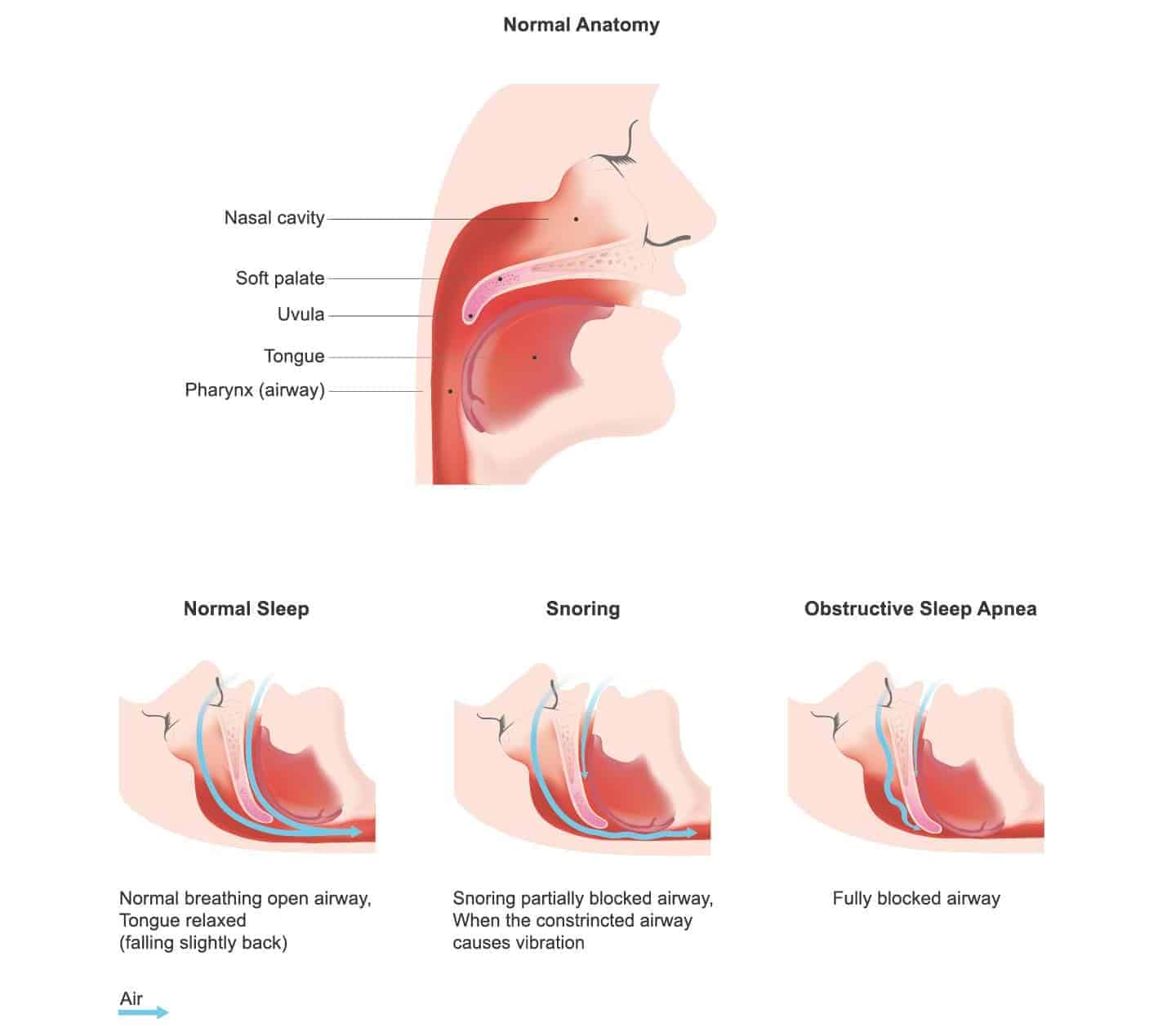
The Differences between Snoring and Sleep Apnea
Not all snoring is created equal. While occasional snoring may be a minor nuisance, persistent snoring might be a red flag for a more serious condition known as obstructive sleep apnea (OSA). Understanding the difference between the two is crucial for your health.
Typical snoring occurs when airflow through the mouth and nose is partially obstructed during sleep. This obstruction causes the surrounding tissues to vibrate, which produces that familiar snoring sound. Factors such as sleeping position, nasal congestion, and alcohol consumption can all contribute to this type of snoring.
Snoring can be a symptom of sleep apnoea, a serious sleep disorder
On the other hand, obstructive sleep apnea involves repetitive pauses in breathing due to complete or partial blockages of the upper airway. These interruptions can last for seconds or even minutes and often result in sudden gasps, choking, or snorting sounds as normal breathing resumes. Unlike simple snoring, OSA is linked to significant health risks, including daytime fatigue, high blood pressure, and increased risk of heart disease.
One of the hallmark signs of OSA is loud snoring punctuated by periods of silence, indicating that breathing has momentarily stopped. If you or a loved one notice such patterns, coupled with excessive daytime sleepiness, dry mouth, headaches upon waking, or trouble concentrating, it’s crucial to seek medical advice. OSA is not just disruptive; it can have severe implications on your overall health.
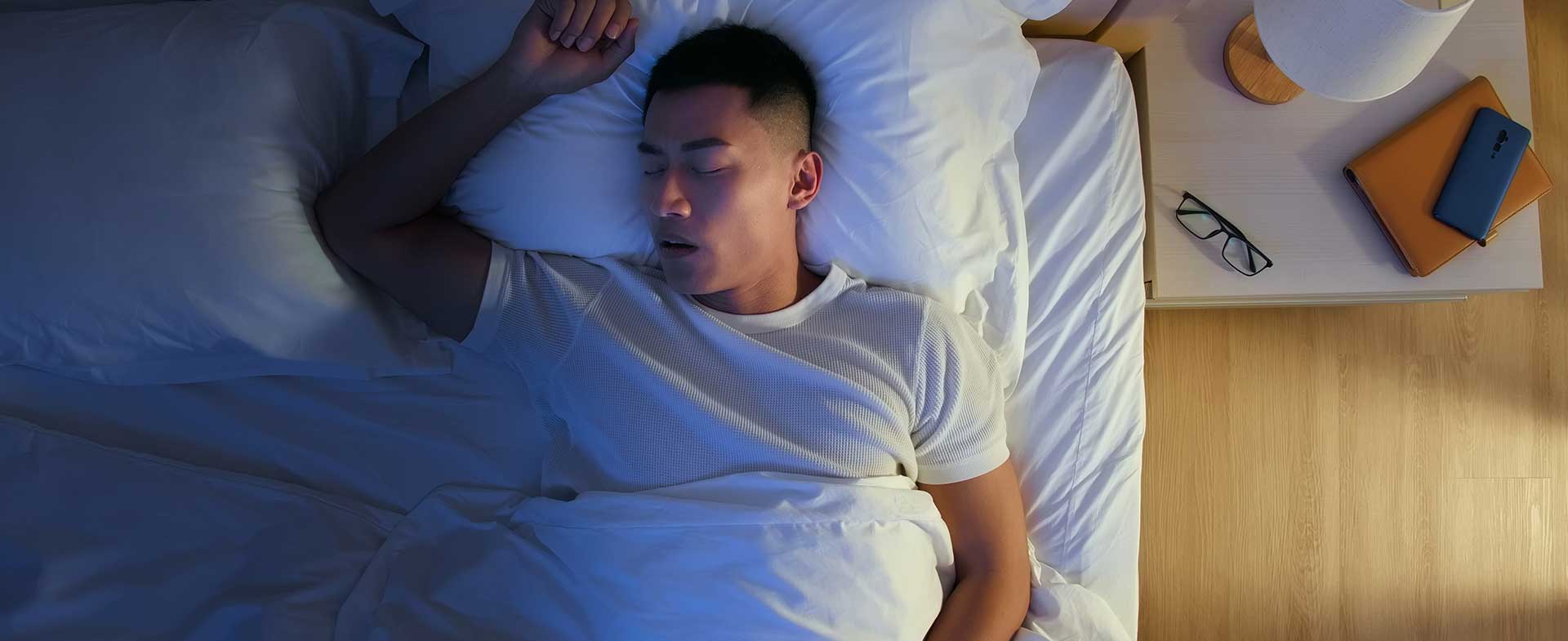
Snoring and Its Impact on Your Health
We may brush off snoring as a mere annoyance, but it’s crucial to understand that it can have significant health ramifications. Snoring occurs when airflow is obstructed during sleep because of relaxed throat muscles, a stuffy nose, or other nasal and oral airway obstructions.
Chronic snoring isn’t merely a nightly nuisance for you and your partner. It’s often linked to sleep disorders like Obstructive Sleep Apnea (OSA). OSA is characterised by repeated episodes where the upper airway becomes partially or completely blocked, disrupting your breathing. These interruptions can cause serious health issues, including hypertension, heart disease, and even heart failure.
Beyond these severe conditions, snoring can also impact your daily life. Poor sleep can lead to daytime drowsiness, reduced cognitive function, and general fatigue, affecting your performance at work or school. Children who snore may even experience impacts on their academic performance and behavioural issues.
If you or your partner notice symptoms such as gasping for air, choking, or pauses in breathing during sleep, it’s essential to consult a healthcare professional. Persistent daytime drowsiness, headaches upon waking, and difficulty concentrating may also be red flags pointing towards a more serious condition like sleep apnea.
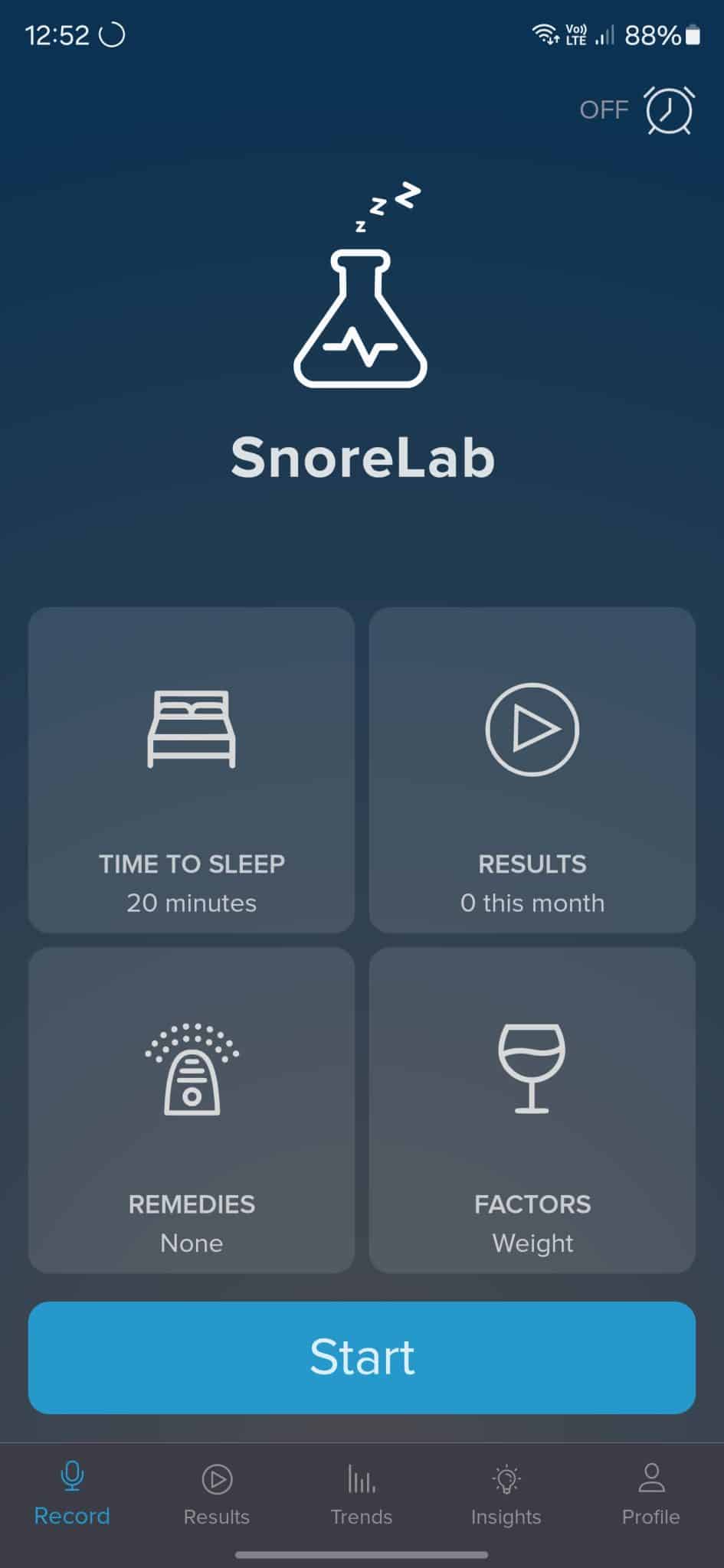
Discovering SnoreLab: Track your Snoring
If you can’t measure it, you can’t improve it. I figured the first thing I needed to do was to get a measure of how bad I was snoring, and then I could look at options to try and sort it.
Are you tired of wondering just how loud you snore at night? Or maybe your partner has given you a literal and figurative earful about your nocturnal noise levels. Well, fret no more. Introducing SnoreLab, an app specifically designed to help you monitor and understand your snoring habits. By providing detailed recordings and snore scores, SnoreLab equips you with the data you need to make informed decisions about potential treatments and lifestyle adjustments. Let’s explore how SnoreLab can transform your nights from noisy to peaceful!
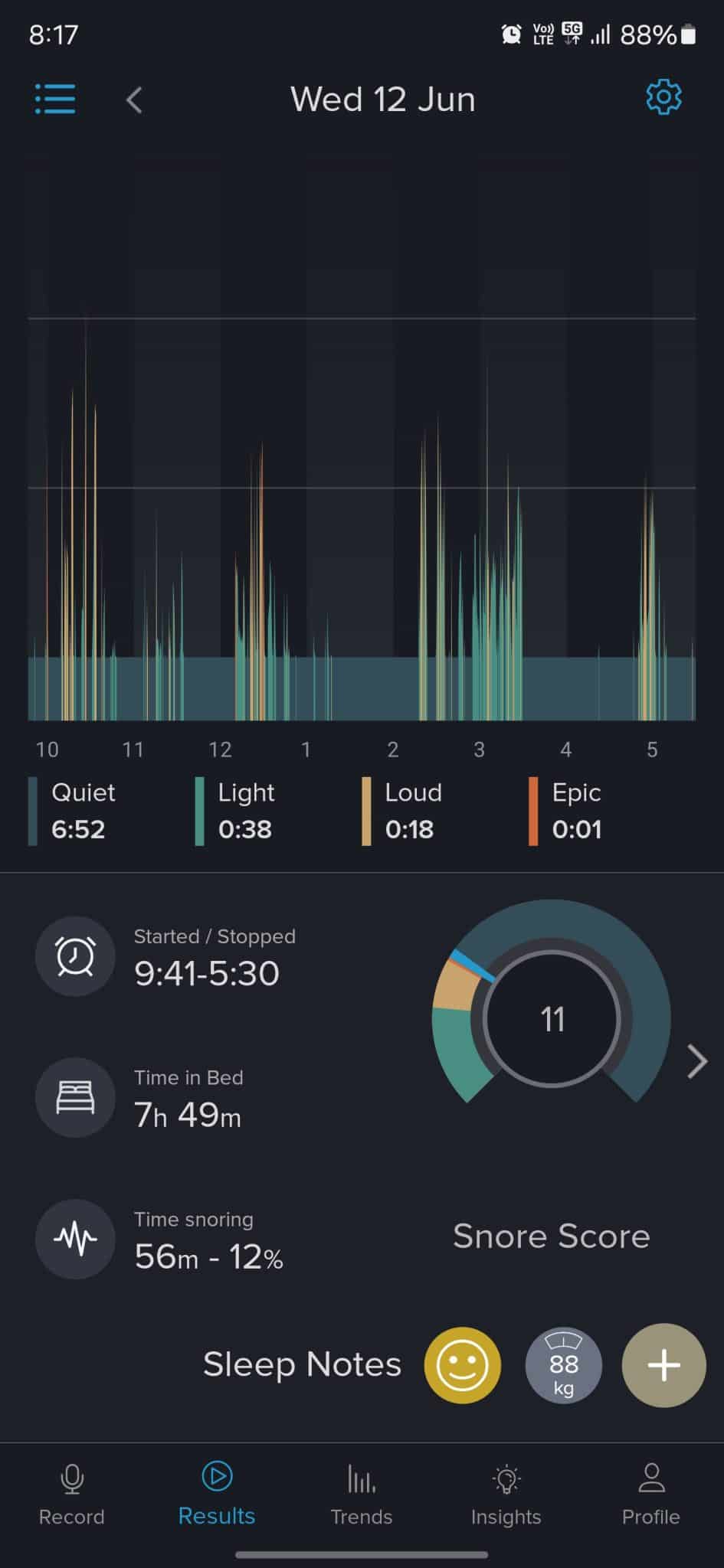
How SnoreLab Tracks Your Snoring Patterns
The app is simple to use.
Each night, activate the app before you go to bed. When you wake up, you’ll have a comprehensive report. This report features a “Snore Score,” an algorithmically determined metric that quantifies the intensity and duration of your snoring. The higher the Snore Score, the more significant the snoring episodes were during the night.
In addition to the Snore Score, SnoreLab provides you with graphs and time-stamped audio recordings. These visual and auditory tools enable you to pinpoint when and how often you’re snoring. With this detailed data, you can identify patterns—for instance, whether snoring intensity increases after a late-night snack or occurs predominantly during a specific sleep cycle.
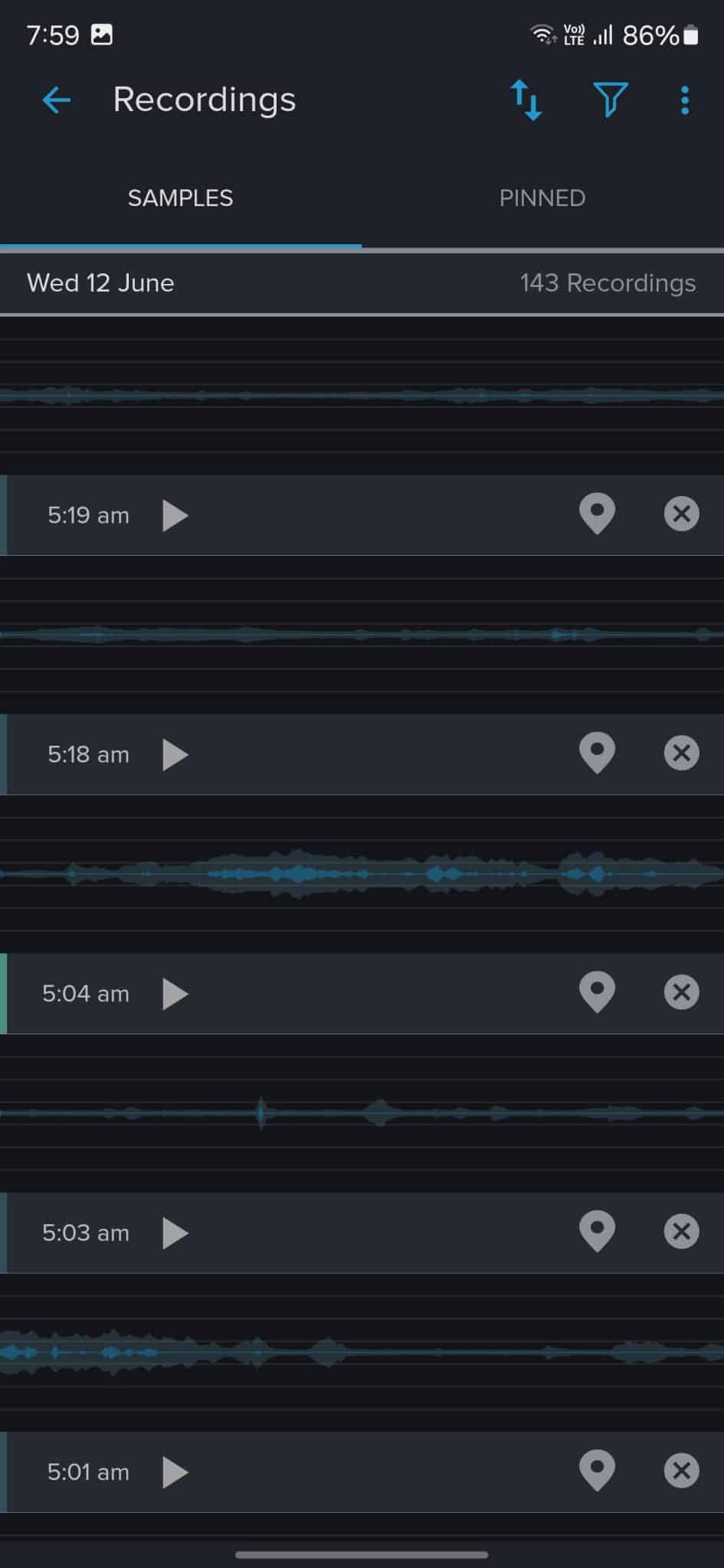
Listening to Your Night-time Symphony: The Fun Side of SnoreLab
One of the unexpectedly delightful features of SnoreLab is its entertainment value. When you wake up in the morning, you can listen to recordings of your nocturnal sounds, offering a fascinating glimpse into the symphony of the night. Whether it’s your snoring, sleep talking, the rustle of bed sheets, or even the occasional cat meowing, you get a comprehensive overview of how eventful your nights can be.
These recordings provide a fun and often hilarious insight into your sleeping habits and allow you and your partner to pinpoint specific sounds and disturbances. It becomes a shared experience where you can laugh together and seriously assess what might affect your sleep quality. This unique feature makes it easier to identify patterns and tailor solutions that work best for you.
By embracing the lighter side of SnoreLab, you can transform what might be a frustrating issue into a source of entertainment and actionable data. It’s a modern twist on understanding the age-old snoring problem, making the journey towards better sleep engaging and effective.
To be fair, I was a little embarrassed initially hearing myself snore. Most of us are – however, it quickly became more amusement than embarrassment, which, to be fair, was probably one of the biggest hurdles I needed to overcome – i.e. My ego.
Once I got past that initial step, I found SnoreLab to be an invaluable tool. I have been tracking my Snore Score for a couple of days now, and, with a recent ‘gift’ my partner has purchased me, I will shortly begin seeing if we can bring it down a bit.
